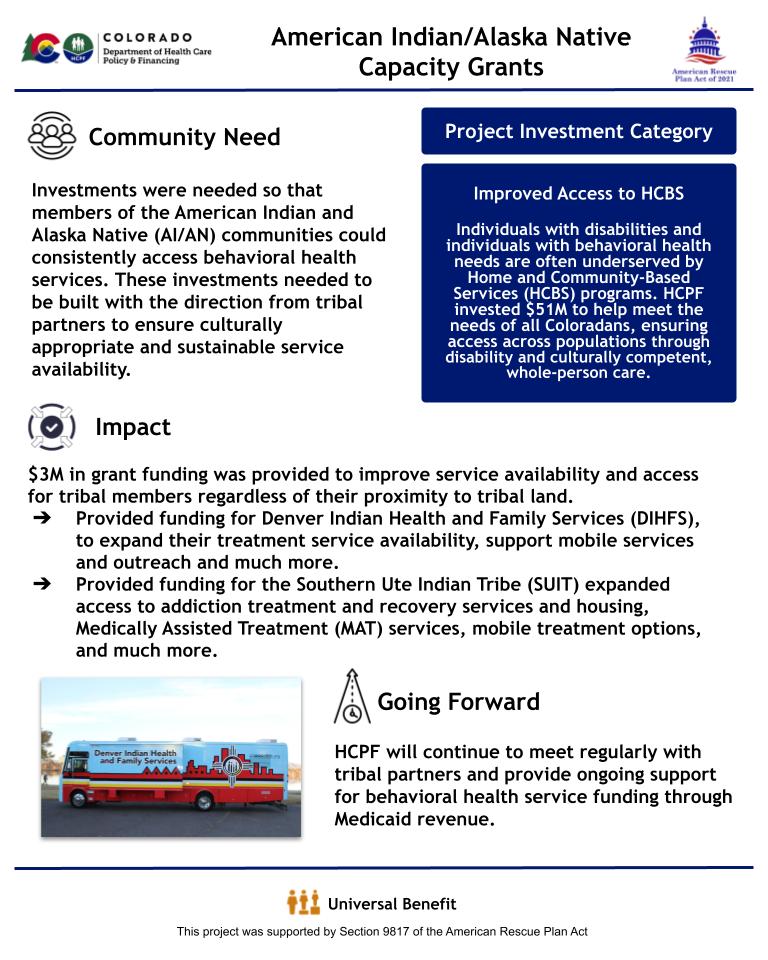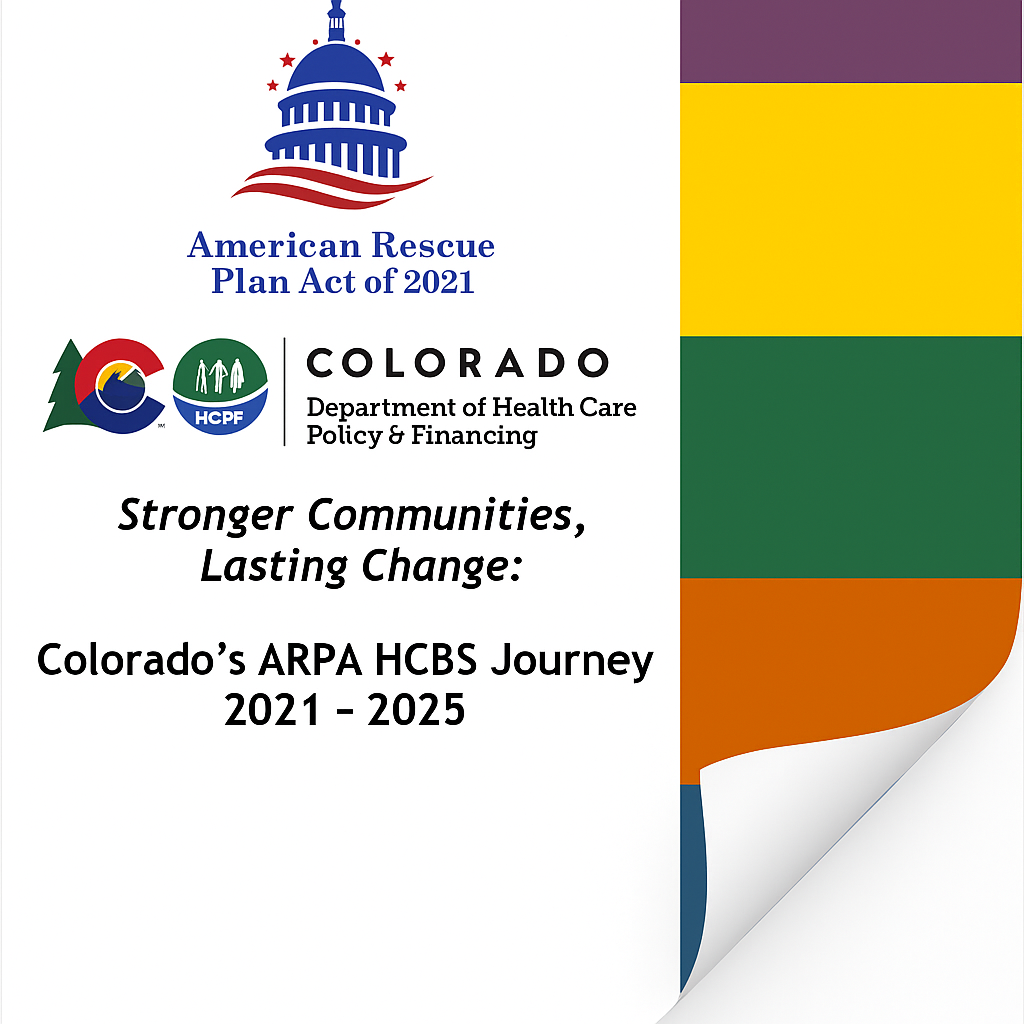Improve Access to HCBS
The Need
The Department has identified several underserved populations in HCBS programs, including individuals with disabilities living on tribal lands, those who identify as Black, Indigenous, and People of Color (BIPOC), and individuals with behavioral health needs. As a state focused on meeting the needs of all Coloradans, ensuring access across all populations through disability and culturally competent, whole-person care is a key priority for the Department.
Initiative 3.01. - Community Access to HCBS
Read a more in-depth summary of this project's outcomes
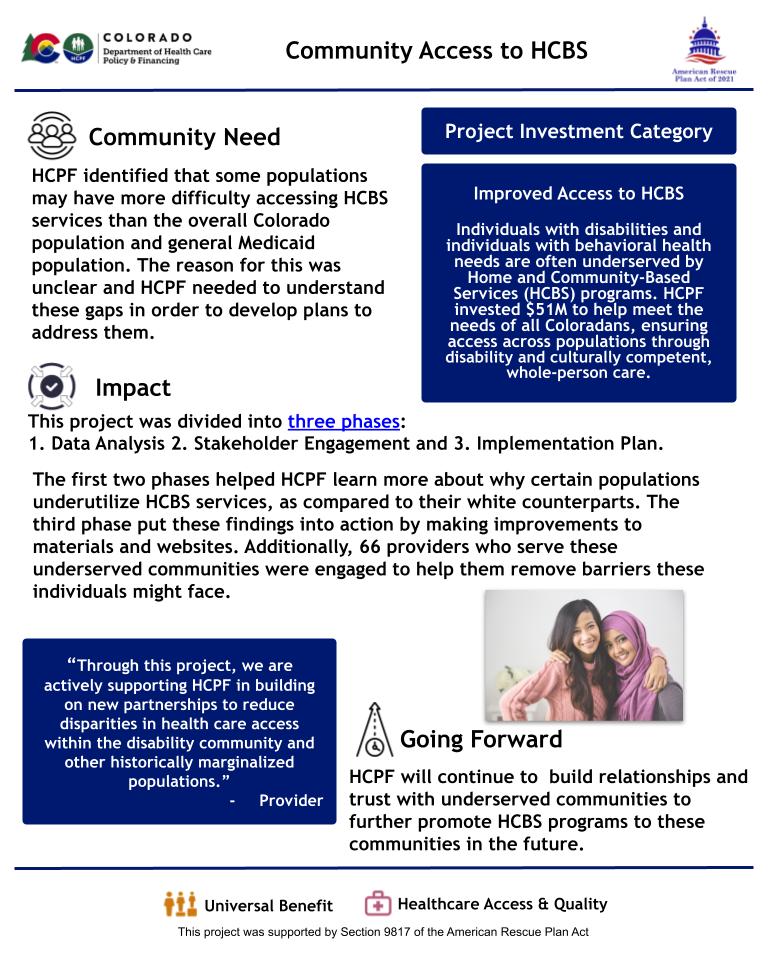
Initiative 3.02. - Buy-In Analysis
Read a more in-depth summary of this project's outcomes
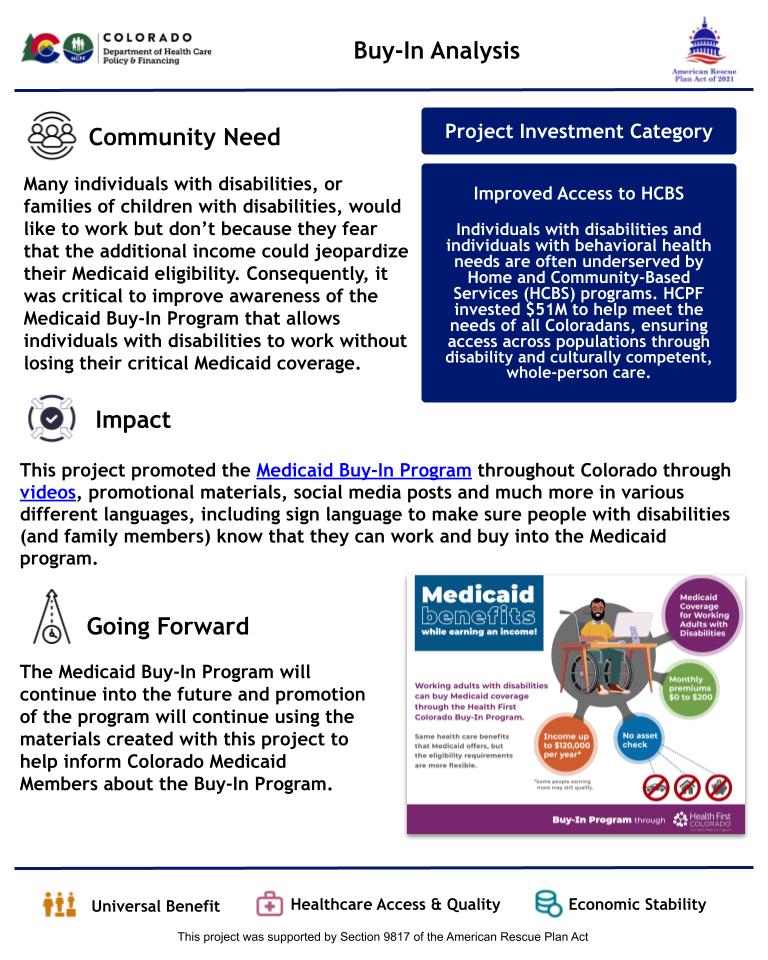
Initiative 3.03. - Community Transitions Support
Read a more in-depth summary of this project's outcomes
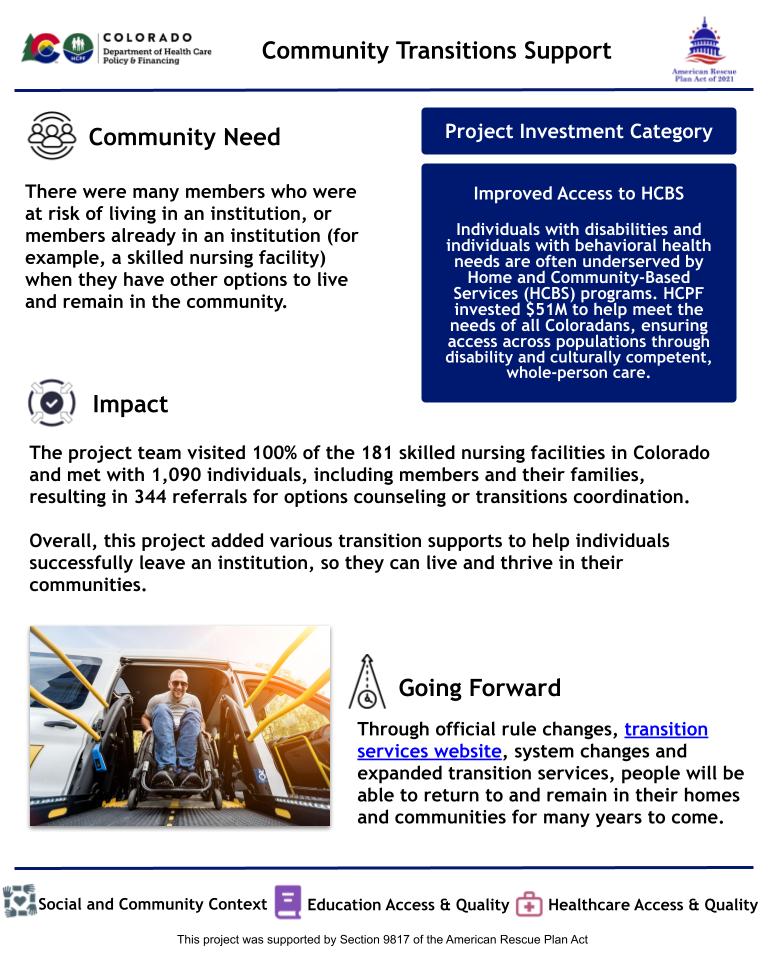
Initiative 3.04. - HCBS Training for Members & Families
Read a more in-depth summary of this project's outcomes
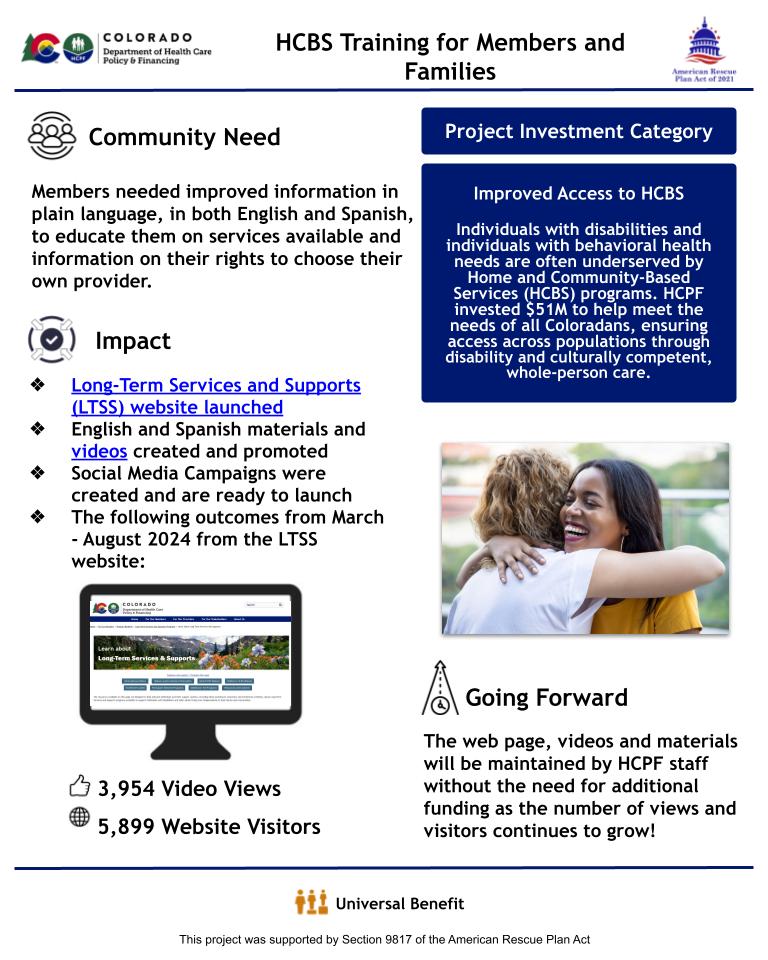
Initiative 3.05. - Translation of Case Management Material
Read a more in-depth summary of this project's outcomes
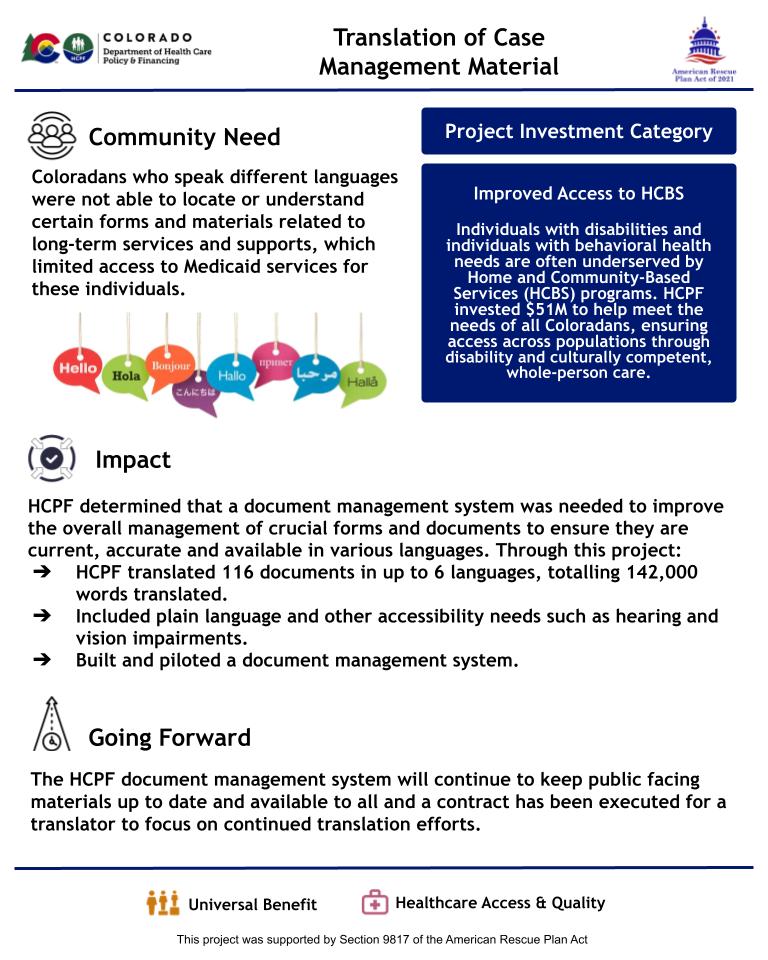
Initiative 3.06. - Expand the Behavioral Health Safety Net
Read a more in-depth summary of this project's outcomes
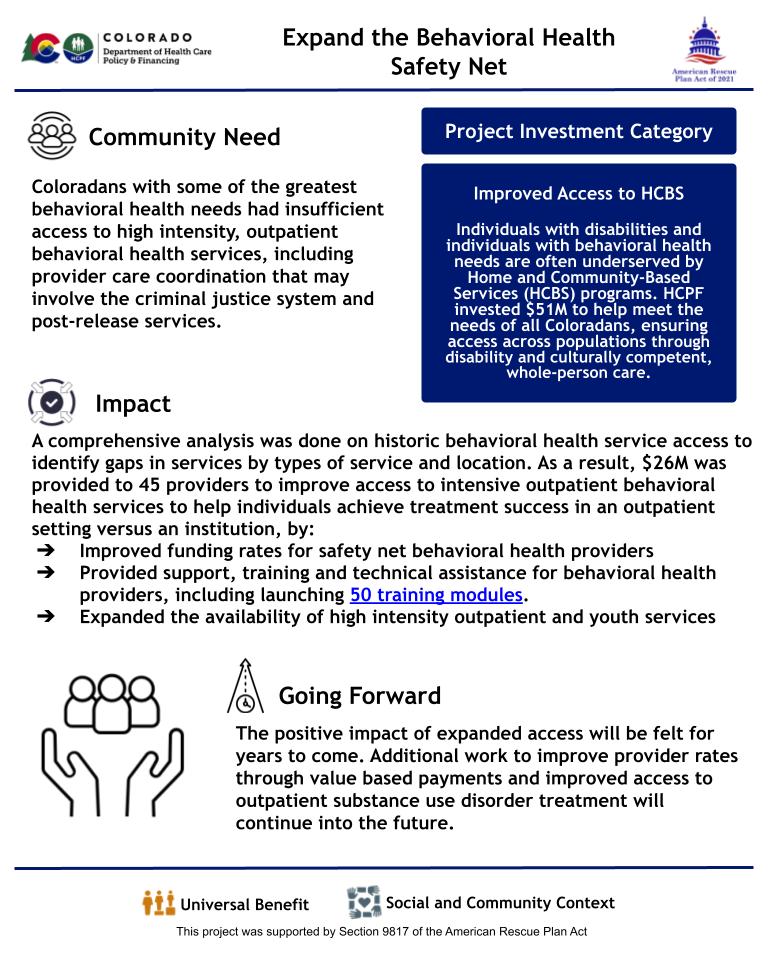
Initiative 3.07. - Wrap-Around Services, including Peer Supports, for Members with Complex Needs
Read a more in-depth summary of this project's outcomes
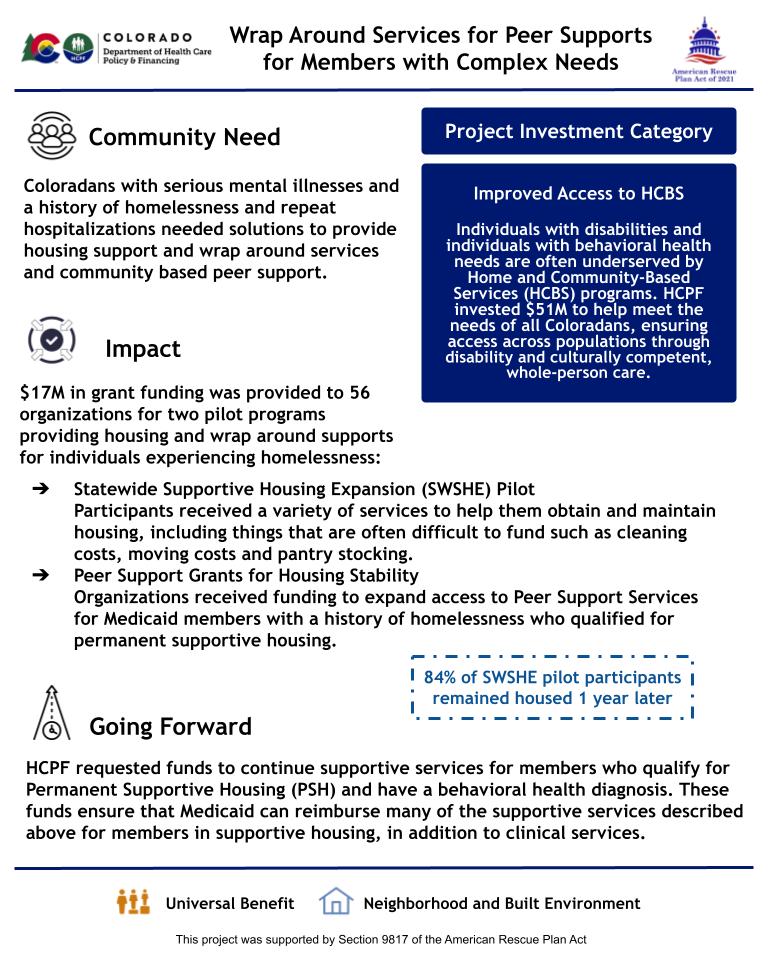
Initiative 3.08. - AI/AN Capacity Grants
Read a more in-depth summary of this project's outcomes
